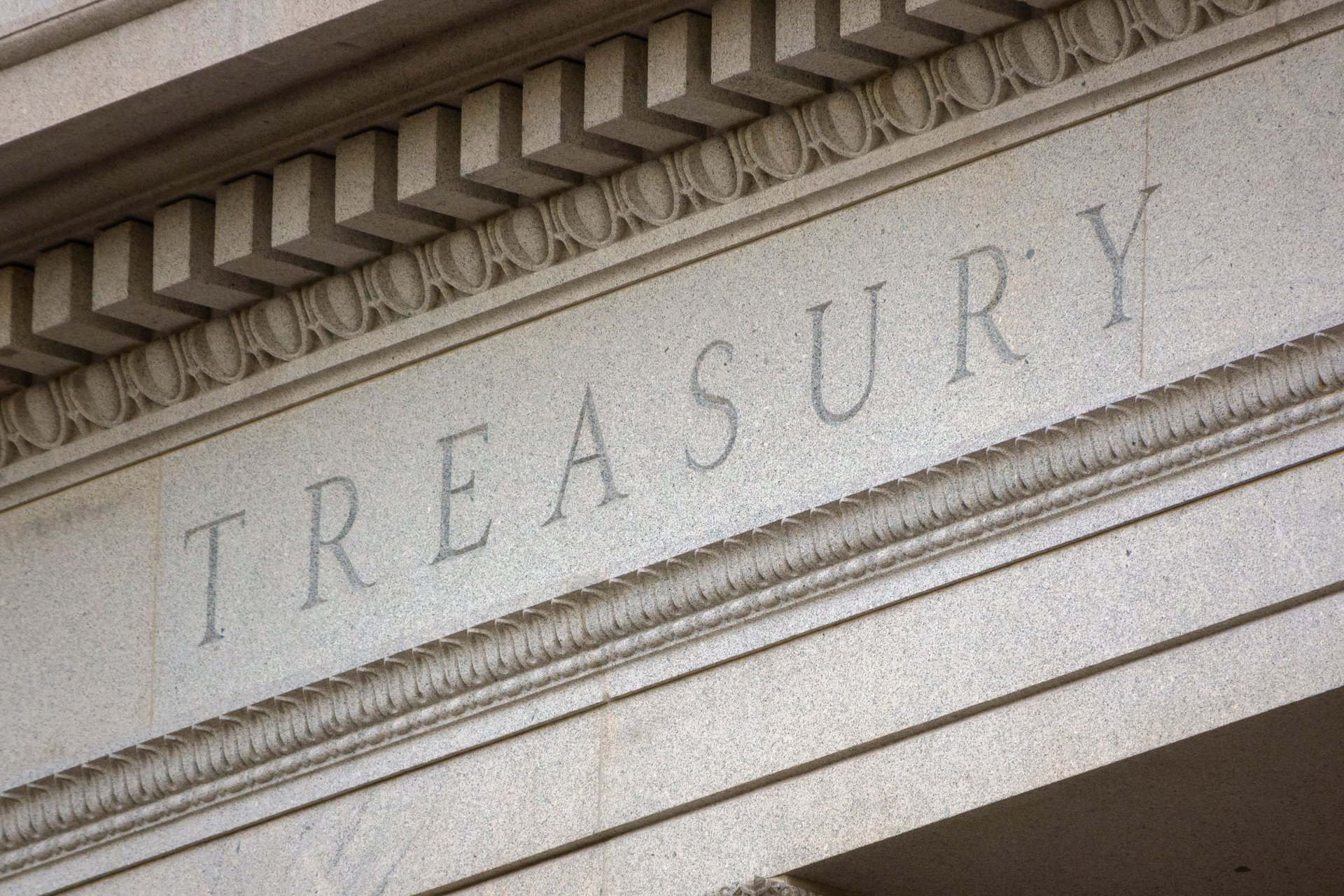A court struck down Trump's tariffs. What happens to the money if they don't survive?
A federal court loss could open the door to at least $100 billion in tariffs getting refunded by the Trump administration

The U.S. Treasury Department building is seen on May 17, 2025 in Washington, DC. (Kevin Carter/Getty Images)
In July, the Treasury Department reported that it collected about $30 billion in tariffs. That's more than triple compared to $8.7 billion in the same month last year.
Suggested Reading
The Trump administration has transformed what was once a trickle into a steady stream of revenue for the U.S. government. The Treasury has reported taking in $115 billion in net tariff revenue through July 2025 per their latest data available. The vast majority of it — or $107 billion — has been collected since February, the month that President Donald Trump first imposed tariffs on Canada, Mexico, and China, citing expansive legal authority that's now tied up in court.
Related Content
However, a federal court decision on Friday struck down a large portion of Trump's tariff regime as illegal. The ruling found that the president didn't have limitless authority to use a 1970s law to impose sweeping tariffs on dozens of trade partners. The tariffs will remain in place until mid-October, but it raised the possibility that the Trump administration could be obligated to pay back at least some of the sizable customs duties it has collected under that law.
"My understanding is that if the tariffs are found to be illegal, refunds will be due to some or all of the importers of goods that paid the tariffs," Jennifer Hillman, an international trade professor at Georgetown University Law Center, told Quartz.
One open question is the scope of a definitive ruling that will likely come from the Supreme Court. Hillman added that such a ruling would determine whether only the named plaintiffs in the lawsuit qualify for refunds — or if every U.S. importer that's paid those import duties can get one too.
A spokesperson for the White House did not immediately respond to a request for comment.
Friday's ruling left intact other tariffs on steel, aluminum, and foreign autos imposed through the Commerce Department. Meanwhile, Trump has raised the specter of chaos in the aftermath of a federal court decision.
“Without Tariffs, and all of the TRILLIONS OF DOLLARS we have already taken in, our Country would be completely destroyed, and our military power would be instantly obliterated,” he wrote in a social media post on Sunday.
Experts dispute the threat of financial ruin if those tariffs are reversed. Administration officials, though, are projecting confidence Trump's tariffs will survive the ongoing federal court challenge. Treasury Secretary Scott Bessent said in a Reuters interview published Monday he believes the Supreme Court will "uphold the president’s authority" in using the International Emergency Economic Powers Act to impose the country-specific tariffs.
That law is more commonly wielded for foreign sanctions, not trade. Trump still invoked it, arguing that persistent trade deficits pose an economic emergency for the U.S.
Some trade analysts say that the Customs and Border Protection is able to set up an extensive refund apparatus.
"It is likely that the Customs and Border Protection Service would set up an administrative process for importers to file for refunds," Julian Ku, another trade expert and professor at Hofstra University's School of Law, told Quartz. "In past cases, they have done so, and importers who feel they have not received proper refunds can challenge the CBP actions in the Court of International Trade."
That could prove a cumbersome process, according to Ku. For some importers, it won't be worth the bureaucratic headaches to secure smaller refunds. Others might have to go through the intermediaries they employed for paying the tariff in the first place to reclaim it for them.
In addition, the cataclysmic alarmism behind the Trump's administration's court arguments might mean they'll throw up administrative roadblocks to avoid repaying the tariffs.
"The White House has no incentive to make such repayments easy," Jessica Riedl, an economist at the right-leaning Manhattan Institute, told Quartz. "These are payments they do not want to make, and they may want to exhaust the creditors into not collecting what they're entitled to."
Riedl estimated it could take months for importers to collect the money once the Supreme Court issues a final ruling.
For now, business groups are being cautious on the possibility of refunds. National Foreign Trade Council President Jake Colvin said in a Friday statement that it was "still unclear whether businesses will see any relief from this decision as the appeals process continues."
